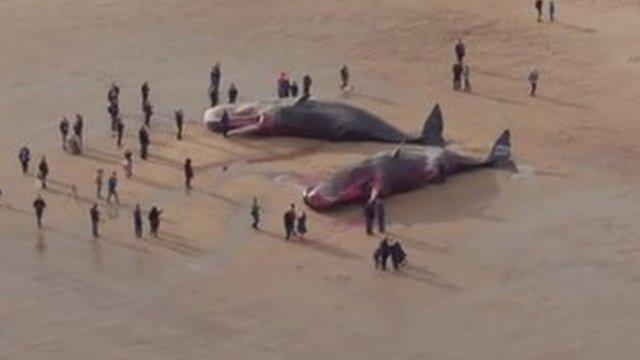Dummy whales and dolphins 'rescued' from North Sea beach
- Published
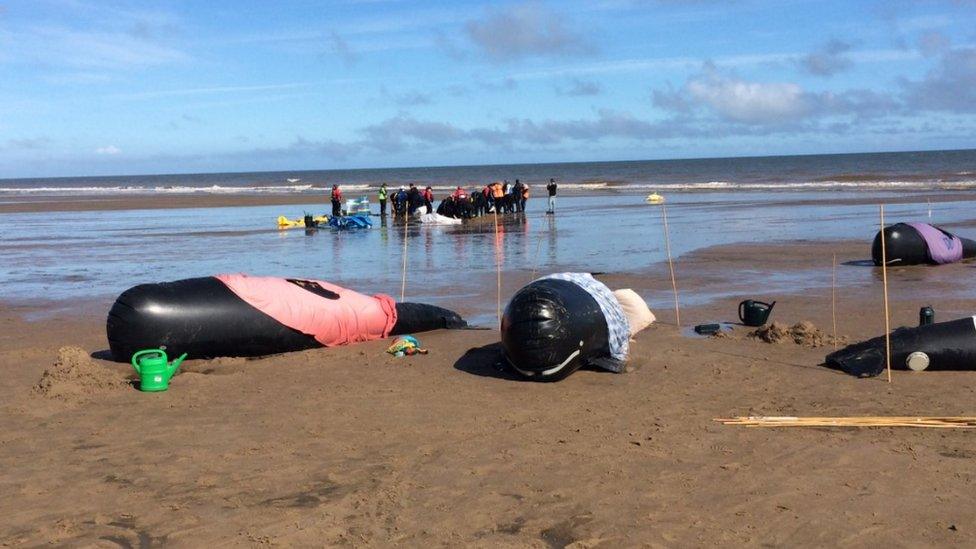
Each rubber whale weighs about two tonnes when filled with water
A marine charity has held a mass beach-stranding simulation rescue using water-filled dummy dolphins and whales.
Dozens of volunteers took part in the British Divers Marine Life Rescue training exercise at Trusthorpe, Lincolnshire, on Sunday.
Operations manager Stephen Marsh said the training was vital in preparing for real situations.
Whales, in particular, needed to be refloated as quickly as possible, he said.
More on this and other local stories from across Lincolnshire
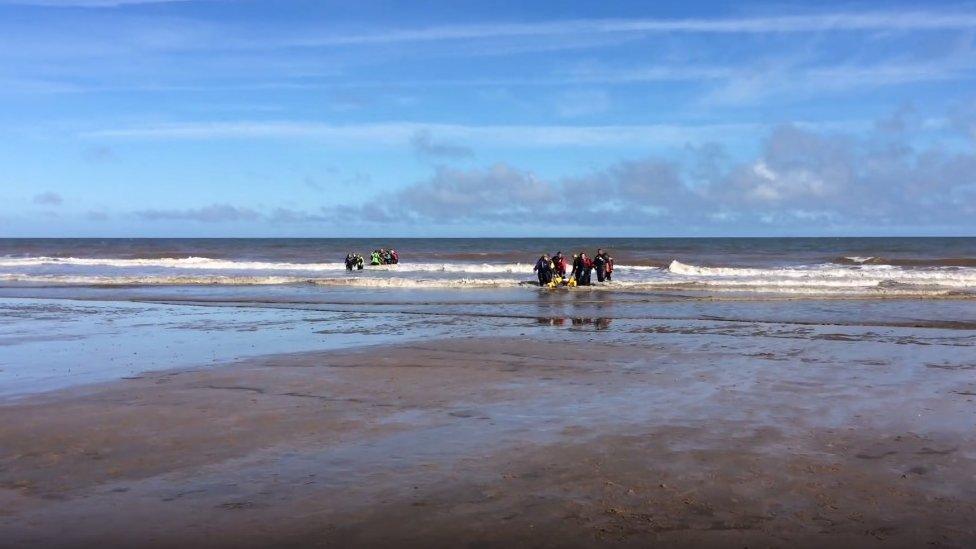
In 2016, the charity dealt with more than 850 rescues, including 43 incidents involving pilot whales
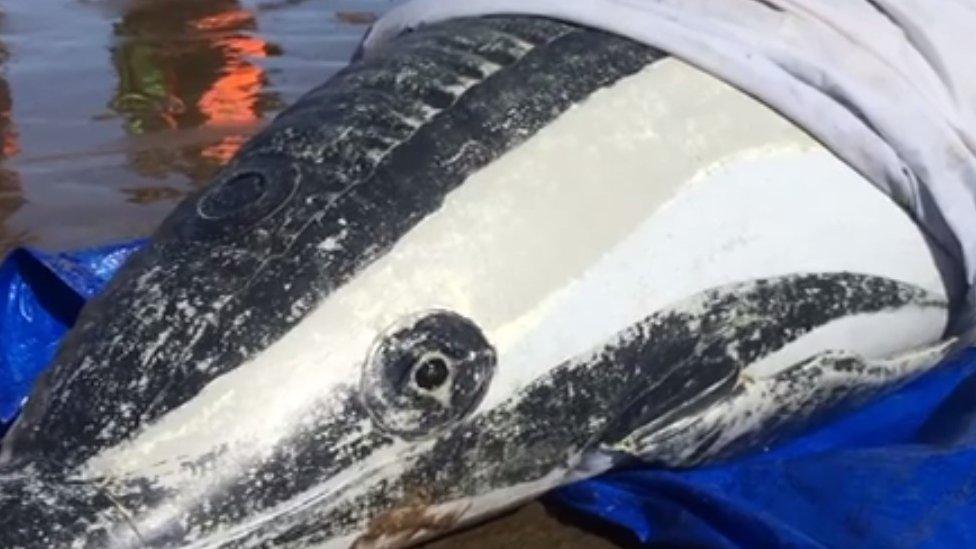
The charity also dealt with numerous incidents involving porpoises and dolphins
In 2016, the charity took part in more than than 850 rescues, including 43 incidents involving pilot whales and 11 involving sperm whales.
Mr Marsh said all kinds of medical problems could occur if the whales were not dealt with promptly.
Why do sperm whales wash up on beaches?
Toxins could be released into the bloodstream, and if a whale was on one side, it could start hyperventilating as one lung shut down, he said.
He said the whales and dolphins used in the exercise were as realistic as possible in terms of weight, size and movement, to mimic what would happen during a real rescue.
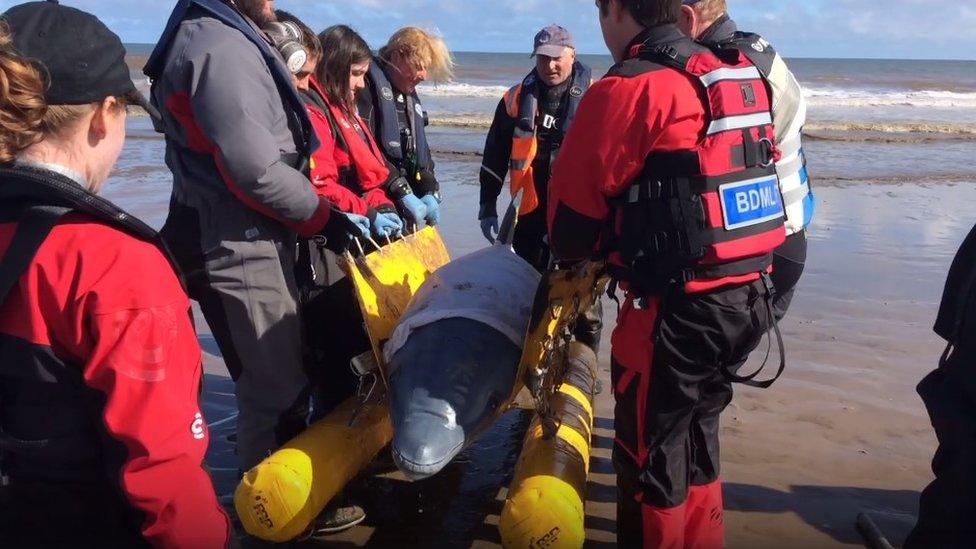
It takes a team of eight people to safely move a 175kg dolphin
Mr Marsh said the event also used the services of a vet to monitor the "stranded animals".
Dolphins, which weigh about 175kg (27 stone), could be moved on a floating stretcher, while pilot whales, which weigh about two tonnes, had to be moved on a floating pontoon, he said.
Mass beach strandings could occur when one animal, which may be injured or diseased, leads others to shallow waters, he added.
A mass stranding in 2016 involving 29 sperm whales may have been caused by large solar storms, responsible for the Northern Lights, scientists claim.
A new study says these geomagnetic disruptions may have confused the whales' ability to navigate.
Several of the whales washed up in Lincolnshire and Norfolk.
- Published5 September 2017
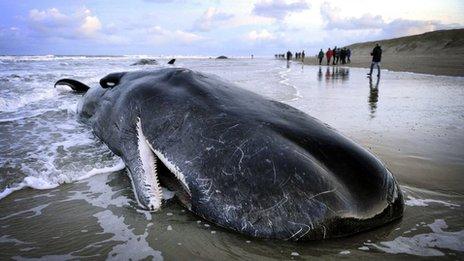
- Published25 January 2016
